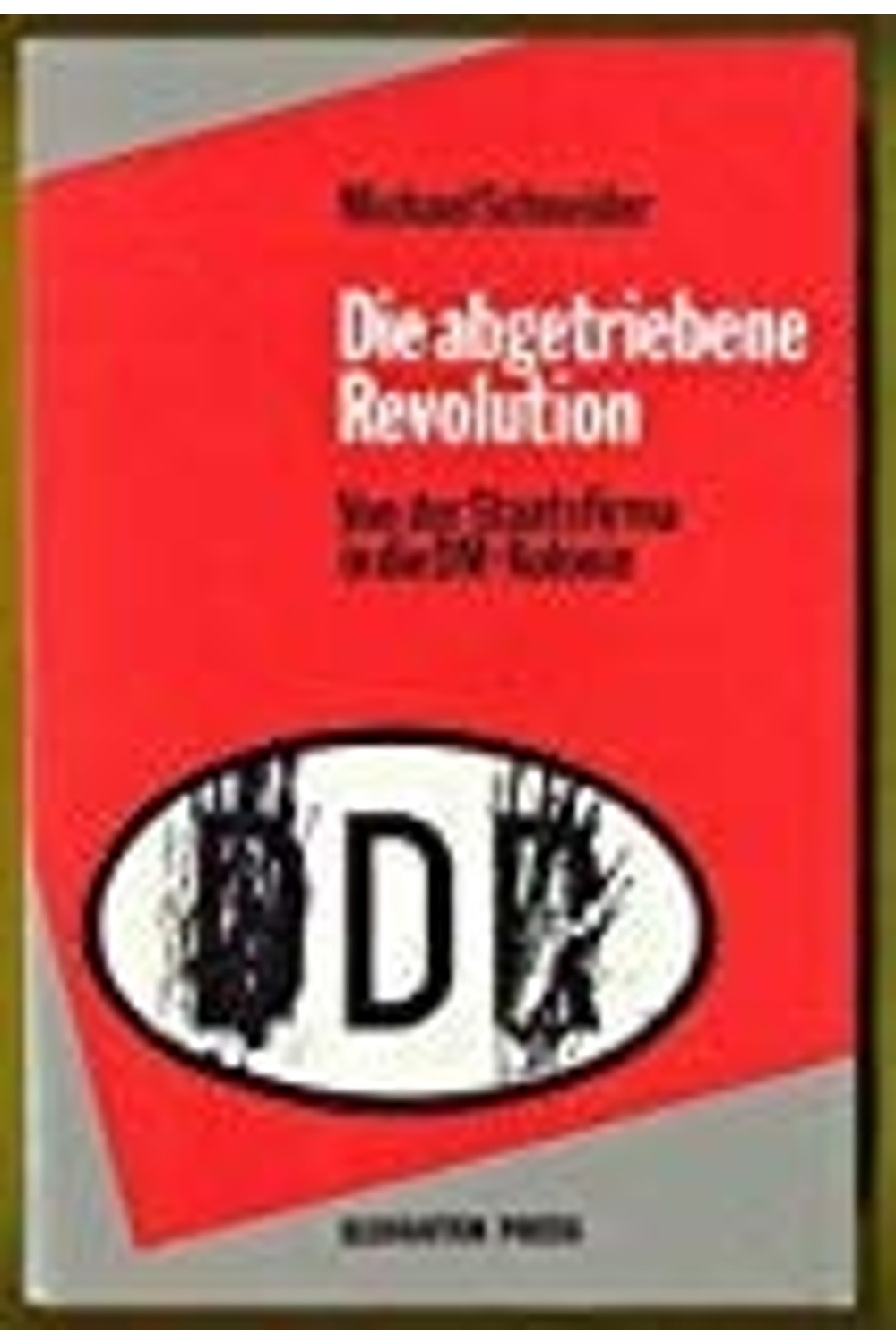Michael Schneider’s “Die abgetriebene Revolution: Von der Staatsfirma in die DM-Kolonie” (German Edition) offers a controversial yet essential perspective on East Germany’s economic transformation following reunification. This 1990 Elefanten Press publication challenges the narrative of seamless integration, scrutinizing the dismantling of state-owned enterprises (Staatsfirmen) and the rapid adoption of the Deutsche Mark. Often described as a critical analysis, Schneider’s work highlights the potential downsides of Germany’s unification. This book, written in German, unearths the displacement and disenfranchisement felt by many East Germans. The book explores how Western investment and policies impacted East German employment, industries, and social structures. For those seeking a nuanced understanding of German reunification and the complexities of post-socialist transitions, this book provides a compelling, if unsettling, account. This perfect paperback edition contains 238 pages. Explore a dissenting voice in the chorus of reunification narratives.
Die abgetriebene Revolution: Von der Staatsfirma in die DM-Kolonie (German Edition)
13,08 $
In stock
Description
Text: German
"Die abgetriebene Revolution: Von der Staatsfirma in die DM-Kolonie" (German Edition) by Michael Schneider offers a critical and insightful analysis of the economic transition of East Germany following the fall of the Berlin Wall and the subsequent reunification with West Germany. Published in 1990 by Elefanten Press, this second edition of the book dives deep into the complexities of transforming a state-controlled economy into a market-driven one, exploring the social, political, and economic consequences for the people of East Germany. Schneider's work examines the dismantling of state-owned enterprises ("Staatsfirmen") and the rapid adoption of the Deutsche Mark (DM), which he controversially characterizes as a form of "colonization." The book doesn't shy away from questioning the prevailing narrative of reunification, suggesting that the process was not as smooth or beneficial for all East Germans as often portrayed. It delves into the impact on industries, employment, and the overall standard of living in the former GDR. While many celebrated the unification as a triumph of freedom and democracy, Schneider's analysis presents a more nuanced and critical perspective. He explores the displacement of East German workers, the devaluation of their skills and experiences, and the rapid transfer of wealth and resources from East to West. The book argues that the economic policies implemented during reunification prioritized the interests of West German businesses and investors, often at the expense of the East German population. "Die abgetriebene Revolution" isn't just an economic analysis; it's also a social commentary on the psychological and cultural impact of the rapid transformation. Schneider addresses the sense of loss and alienation experienced by many East Germans as their familiar institutions and ways of life were dismantled. The book raises important questions about the nature of progress, the meaning of equality, and the challenges of integrating two vastly different societies. Although over three decades have passed since its initial publication, "Die abgetriebene Revolution" remains a relevant and thought-provoking work for anyone interested in understanding the complexities of German reunification and the challenges of transitioning from socialism to capitalism. It provides a valuable counterpoint to mainstream accounts and offers a critical perspective on a pivotal moment in European history. Historians, economists, and anyone interested in political science will find this book to be very interesting and helpful. Schneider's book prompts important discussions about the costs and benefits of rapid economic and political change. This perfect paperback edition, spanning 238 pages, provides an in-depth exploration of these critical issues. This book is written in German.
Additional information
| Authors | |
|---|---|
| Binding | |
| Condition | |
| ISBN-10 | 3885203715 |
| ISBN-13 | 9783885203711 |
| Language | |
| Pages | 238 |
| Publisher | |
| Year published | |
| Weight | 278 |
| Edition | 2 |
SKU: G-9783885203711-3
Categories: German reunification question (1949-1990), Germany (East) -- Economic conditions., Germany (East) -- Economic policy.
- Additional information
- Currencies
- USD – United States dollar
- EUR – Euro
- GBP – Pound sterling
- CNY – Chinese yuan
- BRL – Brazilian real
- MXN – Mexican peso
- JPY – Japanese yen
- PHP – Philippine peso
- THB – Thai baht
- PLN – Polish złoty
- CAD – Canadian dollar
- MYR – Malaysian ringgit
- AUD – Australian dollar
- TWD – New Taiwan dollar
- CZK – Czech koruna
- SEK – Swedish krona
- HUF – Hungarian forint
- ILS – Israeli new shekel
- CHF – Swiss franc
- HKD – Hong Kong dollar
- DKK – Danish krone
- SGD – Singapore dollar
- NOK – Norwegian krone
- NZD – New Zealand dollar

